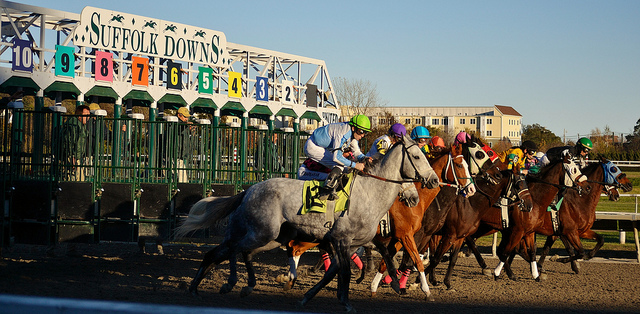The highest court in Massachusetts has approved a proposal that will see voters asked via the November presidential election ballot whether the eastern state should authorize a second slots parlor.
According to a report from The Boston Globe, yesterday’s unanimous ruling from the Massachusetts Supreme Judicial Court addressed only whether backers of the measure and the office of Massachusetts Attorney General Maura Healey had complied with the technical requirements for inclusion on the November ballot and not the merits of the proposal.
“We conclude that the petition complies with these provisions and was therefore properly certified by the Attorney General,” read a statement from Ralph Gants, Chief Justice for the Massachusetts Supreme Judicial Court.
If subsequently approved by voters, the referendum measure would authorize the Massachusetts Gaming Commission to issue a second licence for a slots-only facility and this would be added to the state’s mix that already includes three casinos and the Plainridge Park Casino slots parlor authorized under a law passed in 2011. Being backed by property developer Eugene McCain through his Horse Racing Jobs And Education Committee vehicle, the proposal specifies that the future slot venue would only be permitted on a parcel of land at least four acres in size and within 1,500 feet of a racetrack or its outbuildings.
“Our goal is to give the citizens of Massachusetts the opportunity to express their support for one additional slots parlor during this November’s election,” read a statement from McCain issued through attorney Jeffrey King. “Approval by the citizens this fall will enable an enterprise that will create many jobs, provide substantial additional tax revenues for education in the Commonwealth and bring funds to the Massachusetts horseracing tradition.”
McCain is hoping to build a luxury hotel and slots parlor on a plot of land next to the partially-shuttered Suffolk Downs thoroughbred racetrack in East Boston but the Massachusetts Supreme Judicial Court declared in its ruling that it is not favoring one project or investor. It explained that there is nothing in the language of the referendum to prevent other parties from building a new track while the owners of existing racing facilities in Brockton and Plainville may also still qualify.
“It may well be true that this petition was motivated by one person’s desire to profit from the Commonwealth’s developing gaming industry based on his ownership interest in a particular property,” read the statement from Chief Justice Gants. “But our focus in deciding whether an initiative petition reaches the voters must be on the actual law proposed by the petition [and] not on the motives that may lie behind it.”
Matthew Cameron, an attorney for an all-volunteer group that had opposed the inclusion of the question on the November ballot, told the newspaper that he was disappointed with the ruling but would now shift attention to convincing voters to reject the measure.
“I respect what the court did,” said Cameron. “I see where they are coming from but the fact remains that this is filed by one man for one purpose and we need to make the voters aware that this is not the time to be adding more casinos in Massachusetts.”



